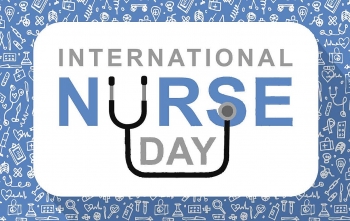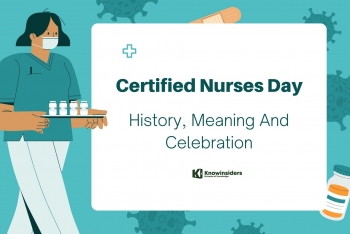How to Craft a Nurse Resume That Gets You Hired
 |
| How to Craft a Nurse Resume |
Sometimes you need a professional nursing resume writing service to boost your hard skills. Some job seekers, however, tend to ignore career advice and prefer crafting papers on their own.
In the competitive field of nursing, having a stand-out resume is crucial. Let's explore some essential tips on how to craft a nurse application that gets you hired. We’ll get to the bottom of a car-crashing job application!
The Top Reasons For Rejection
Before you start, let's explore why recruiters may reject you. According to the CareerBuilder survey, here are the top reasons:
• Impersonal applications (84%)
• No thank you note (57%)
• Lack of customization (54%)
Therefore, if you pay more attention to clear and concise formatting, you can land a dream job.
Having Less Experience
The other thing about the nursing profession is that you will need job experience or some practical skills you can apply now. Candidates with no experience still have an opportunity to land a job, but they need to work hard to get what they deserve.
Start with a strong summary
Your summary is the first thing potential employers will read, so it must grab their attention. It should summarize your nursing experience, skills, and accomplishments.
Use strong action verbs and highlight your strengths. Ensure it's clear and concise, and avoid using generic statements that could apply to any nurse.
To get even more attention from recruiters, ask resume writing services for help. We know how to get you hired quickly and focus on your accomplishments in front of employers.
Highlight your nursing experience
Your nursing experience is one of the essential things on your resume. Make sure to list your most recent and relevant nursing jobs, including your job title, the name of the facility, and your job responsibilities.
Use bullet points to make it easy to read and highlight your accomplishments. Include any certifications, licenses, or special training you have received.
Emphasize your skills
In addition to your nursing experience, it's essential to highlight your skills. Make a list of the skills that are relevant to the position you're applying for.
Writers from professional resume services recommend skills such as critical thinking, patient assessment, medication administration, and wound care. Provide examples of how you've used these skills in your nursing practice.
Include your education
Your education is an integral part of your nursing resume. Ensure to include your nursing degree, the name of your school, and your graduation date. If you have any additional education or certifications, include those as well.
Use keywords
Many employers use Applicant Tracking Systems (ATS) to screen applicants. These systems look for keywords that are relevant to the position. Make sure to include keywords in your resume that match the job description. It may consist of specific nursing skills, certifications, or job responsibilities.
Customize your resume for each job application.
Each job application is unique, and the document you send should reflect that. Customize your job summary for each job application, highlighting the skills and experience most relevant to the position. It will show the employer that you took the time to read the job description and tailor your resume to their needs.
Use a professional format
 |
| Nurse Resume that gets you hired |
Your job application should be easy to read and professional. Use a simple, clean format with clear headings and bullet points. Make sure to use a font that is easy to read, such as Arial or Times New Roman. Use white space to make the final version easy on the eyes, and avoid using graphics or images.
Proofread your resume
Before submitting your application, make sure to proofread it carefully. Check for spelling and grammar errors, and ensure all the information is accurate. Have someone else read it, as a fresh pair of eyes can often catch mistakes you might have missed.
Сrafting a nurse resume that gets you hired requires attention to detail, a focus on your strengths, and customization for each job application. Use these tips to create a robust nursing application that showcases your skills and experience and demonstrates why you're the right candidate for the job.
With a robust job application, you'll be on your way to landing the nursing job of your dreams.
Conclusion
You must provide a bot-beating resume if you're looking for a nurse position. If you need writing help, call Skill hub writers. Our hiring professionals won't hesitate to create a perfect job application to land the job of your dreams.
FAQ
1.How to write a resume for the first nursing job?
Follow these steps to create an excellent nursing resume if you're a beginner:
• Structure your information;
• Include additional certifications;
• Take care of the format;
• Add volunteer history;
• List clinical rotations if you had them.
A new-grad resume for nurses is different from a professional one. You have a little work history for now, but you can express your knowledge and ensure the recruiter will notice you among other applicants.
2.What's the most suitable resume format for nurses?
A reverse-chronological format remains the best option for nurses. But if you have a gap in your employment history, consider other forms to make your job application more appealing.
For example, you might emphasize your educational accomplishments. Or present yourself as a person with solid recommendations from the academic field. Anything can help!
3.How many pages should the nursing resume fit into?
Your document should be one-page maximum, even if you're a well-experienced professional. Keep it terse, and avoid getting too excited with describing your duties. The recruiter won’t spend more than seven seconds reading your resume; you should use this time wisely.
All you have to do is show you have the skills to perform the job and you've been working in many places before highlighting your experience.
Works Cited
Brooks, Beth, Sue Barrett, and Polly Gerber Zimmermann. "Beyond your resume: A nurse's professional "portfolio." Journal of Emergency Nursing 24.6 (1998): 555-557.
Jilk, Erin M., et al. "Brush up your professional nursing résumé." Nursing2022 47.10 (2017): 41-45.
Pullen Jr, Richard L. "Résumé success." Nursing made Incredibly Easy 21.1 (2023): 47-48.
Worman, Dawn. "Coaching on Resume Development and Interview Preparation for Nurses Desiring Career Progression." The Journal of Continuing Education in Nursing 52.11 (2021): 502-504.
Worman, Dawn. "Mentoring nursing students in resume writing and interview preparation." Nurse Educator 45.3 (2020): 132.
 International Nurses Day (May 12): History, Theme, Significance and Celebrations International Nurses Day (May 12): History, Theme, Significance and Celebrations International Nurses Day is a global celebration held every year in May, as well as marks the anniversary of Florence Nightingale's birth. Read on to ... |
 10 Highest Paying Jobs In The US: Physician, Nurse and Dentist 10 Highest Paying Jobs In The US: Physician, Nurse and Dentist What job earns the highest in the US? Doctor, teacher, CEO or engineer? Read on to know Top 10 Highest Paying Jobs In The US ... |
 Certified Nurses Day: History, Meaning And Celebration Certified Nurses Day: History, Meaning And Celebration Certified Nurses Day (March 19) honors nurses who work hard to save lives. Read on to know this day’s meaning and celebration. |























